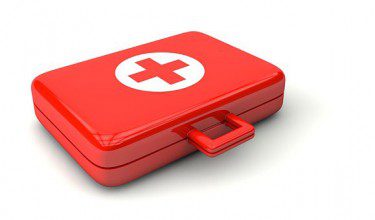Self-Harm
Self-harm could be defined as an outward expression of an inward struggle.
That struggle might be unbearable stress and tension that is so psychologically painful that the only way to lessen it is to cause physical pain, which will distract the sufferer for a time, distraction from the emotional distress caused by issues such as: abuse, neglect, bullying, trauma, depression, bereavement, problems at home or work etc. Self-harm could also be someone’s way of punishing themselves, a way of assuaging the heavy feelings of guilt and shame they are carrying.
 Methods of self-harm may include cutting, scratching, pinching or burning the skin, punching or hitting, banging the head, pulling out hair, poisoning or starving. To the observer it can be very alarming, but for the person self-harming it can feel like relief, a way of externalising their feelings, expressing their pain, and letting out the steam of what can feel like a pressure cooker of emotion. It can feel like a coping strategy in times of intense distress.
Methods of self-harm may include cutting, scratching, pinching or burning the skin, punching or hitting, banging the head, pulling out hair, poisoning or starving. To the observer it can be very alarming, but for the person self-harming it can feel like relief, a way of externalising their feelings, expressing their pain, and letting out the steam of what can feel like a pressure cooker of emotion. It can feel like a coping strategy in times of intense distress.
Self-harm is more common that we’d like to think, especially in the teenage years, for example in the 11-16 year age group approximately 1 in 10 self-harm at some point. The UK has the highest self-harm rate of any country in Europe with estimates of 400 in 100,000 people that self-harm (Horrocks, J., House, A. & Owens, D. (2002). Attendances in the accident and emergency department following self-harm; a descriptive study. University of Leeds, Academic Unit of Psychiatry and Behavioural Sciences.) This equates to 27,840 cases of self-harm in the UK ever year. So if you’re reading this and are self-harming, please know that you’re not alone in this, and there is help available.
It’s vital that those who self-harm reach out for help, because without support there is a risk that they can fall into a vicious cycle whereby they gain temporary relief by hurting themselves and thus lean on it as a coping strategy, a normal way of managing the issues in their life. It’s also important to recognise that there are risks involved in self-harming that could cause irreparable damage or even death.
There are other far more kind and effective ways of coping with emotional pain. Here are some ideas you might like to try:
- Keep a diary – writing down your thoughts and feelings can have a cathartic effect – expressing them by committing them to paper can help you externalise what’s going on in your mind and help you think things through more clearly.
- Talk to someone – telling someone else how you feel can be such a relief, that someone knows how you feel, understands and cares. Choose someone you trust and feel comfortable talking to, or there are helplines such as Samaritans, Mind or Childline. Accessing the support of a counsellor will provide you with professional help so that you can work through the issues causing the self-harm, enabling you to tackle the root causes of the problem.
- When tempted to self-harm, try postponing it for 10 minutes, do something else instead such as going for a walk, putting on some music, watch a tv programme, call a friend etc. you may find that by distracting yourself the emotional intensity diminishes and you are less likely to want to hurt yourself. If the feeling doesn’t go away then please use harmless pain such as taking a cold shower or eating a hot chilli.
If there’s one thing I would want you to remember from reading this blog it’s this: what you are feeling matters, your thoughts and emotions are important and if you are self-harming because you’re in that much emotional pain then please reach out for help. If you’d like to get in touch my contact details can be found on the contact page of my website. I’m here for you as and when you’re ready.
